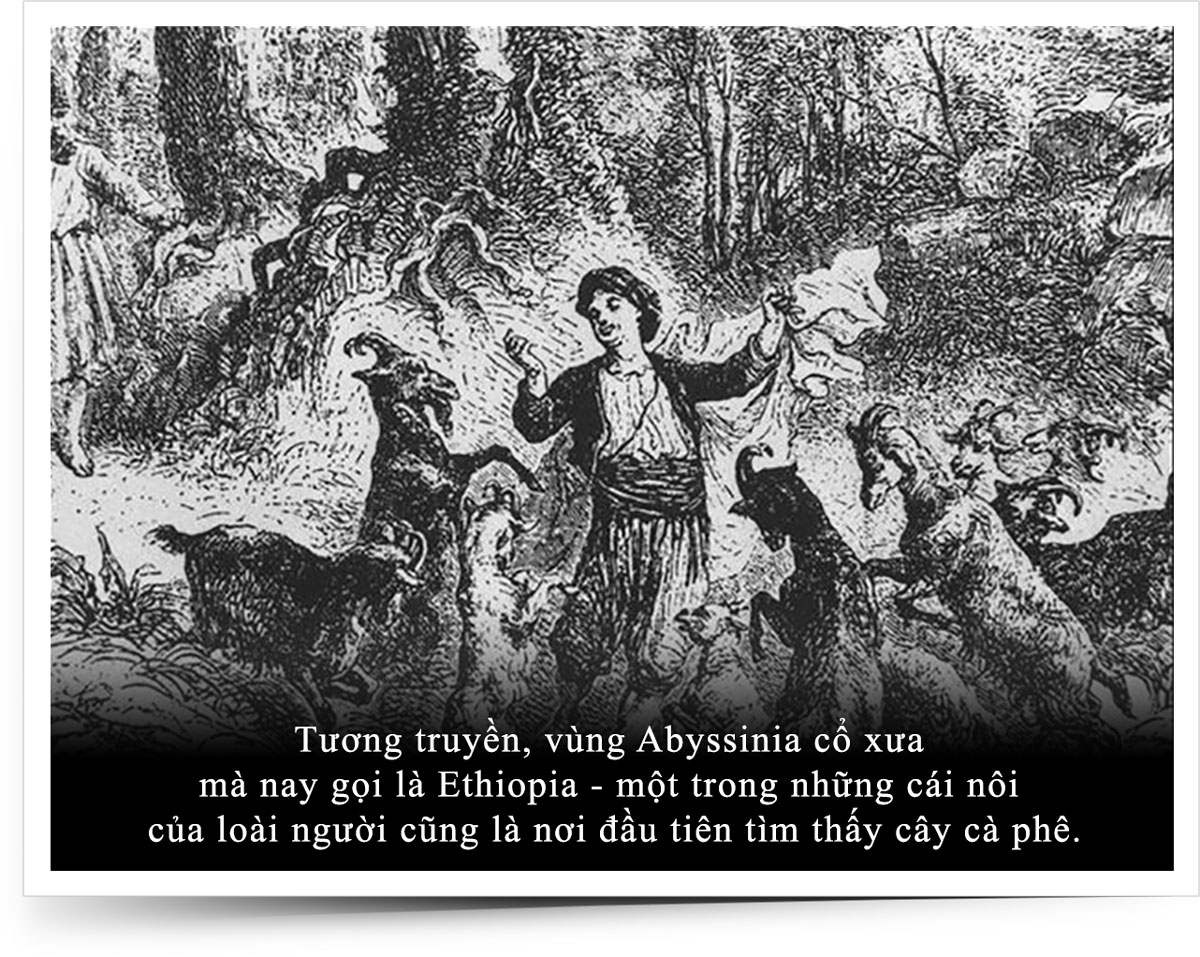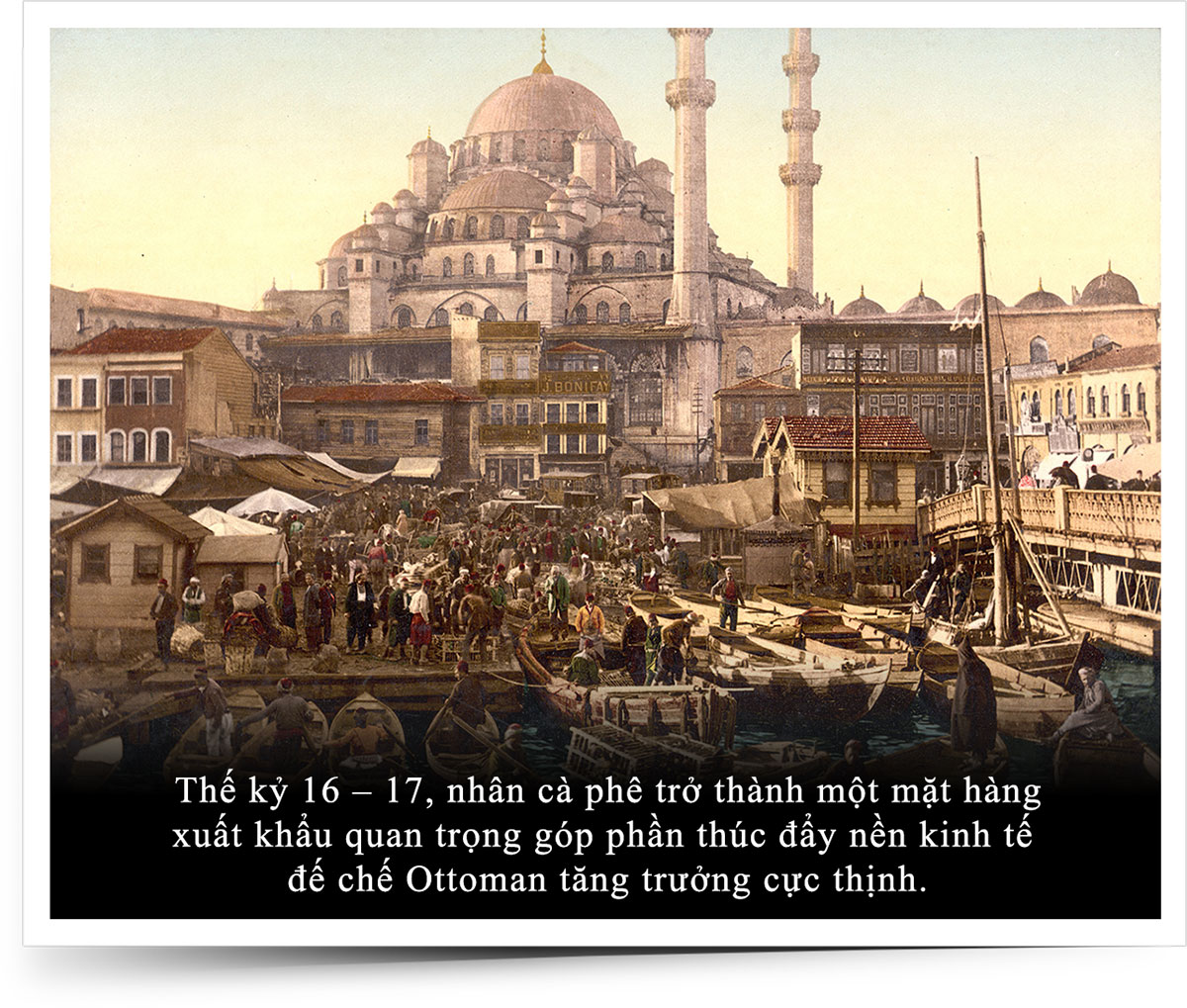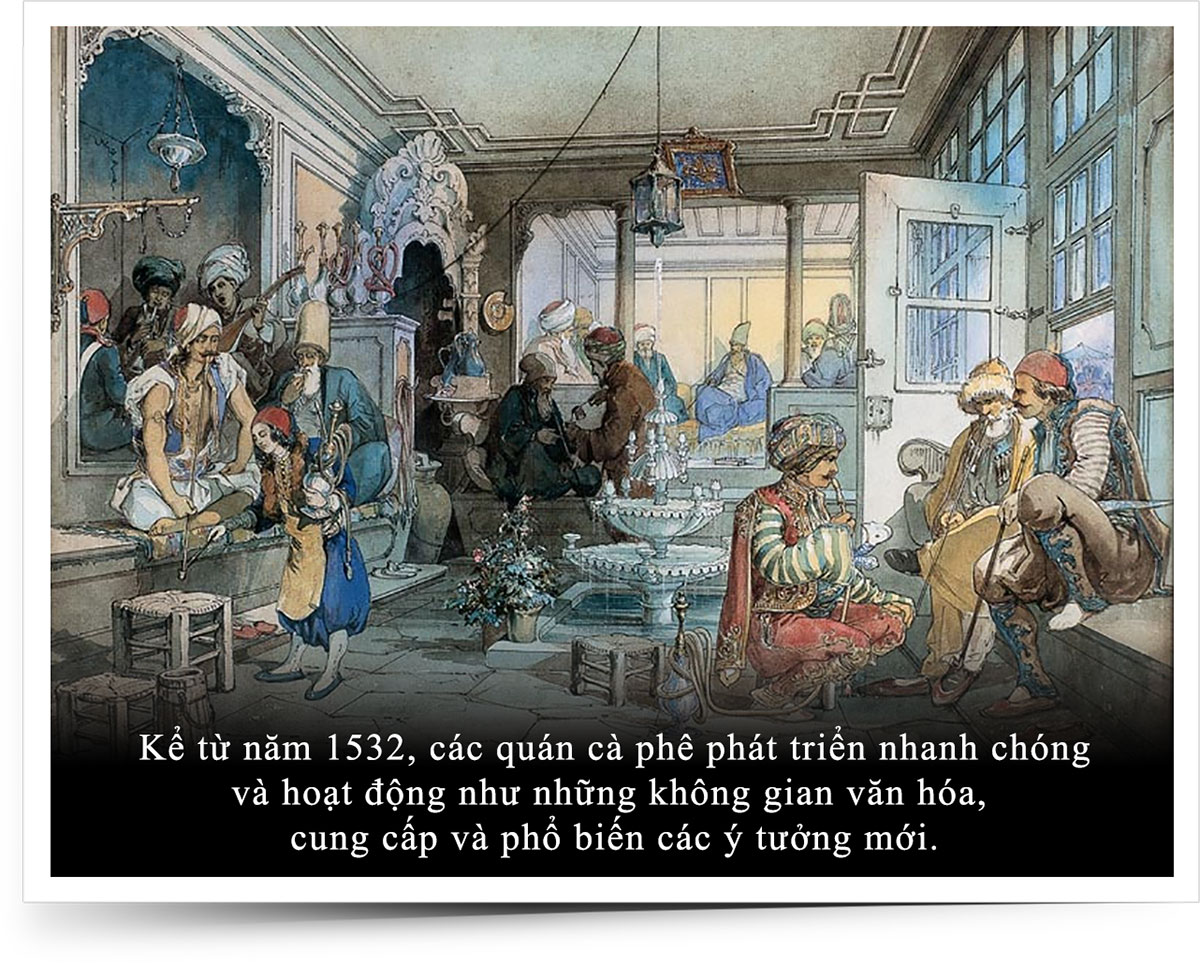Article 3: Coffee – The origin
Since its appearance, coffee has been considered a source of creative energy, helping people to be awakened. And throughout the course of history, from its beginnings to becoming the world’s most popular commodity, coffee is an indispensable beverage in the endless creative life of mankind, playing an important role in promoting the development of each society.
Gift from God
Legend has it that the ancient region of Abyssinia, now known as Ethiopia – one of the cradles of mankind, was also the place where the coffee tree was first found. In the 9th century, a goat boy in the Kaffa region of Ethiopia discovered that his goats, after eating the leaves and cherries of a plant with white flowers and red fruits, became excited, ran and jumped tirelessly. The boy curiously chewed the cherries and felt strangely awakened. Amazed, the boy informed the senior monk at a nearby monastery.

Legend has it that the ancient region of Abyssinia, now known as Ethiopia – one of the cradles of mankind, was also the place where the coffee tree was first found.
The monk was concerned that this was a forbidden fruit of the devil, so he immediately threw it into the furnace. However, those red cherries, when burned, gave off an aroma that makes the spirit so refreshing and awakened. At this time, the monk believed that this was a gift from God, and gathered other monks. They roasted the cherries, pounded them and mixed them into drinking water to enjoy the blessings and talked about great prophecies that could enlighten the mind and keep people awake all night long. Because Kaffa hill was the place this plant was first discovered, it was named coffee (kaffa) and later the essence extracted from coffee cherries was named caffeine.
Becoming a commodity that promotes economic development
After the Ethiopians discovered coffee, this beverage was used by Sufi Muslims as a source of energy to keep the mind awake during midnight prayers. In the late 15th century, pilgrims carried coffee throughout the Muslim world to Ottoman, Persia, Egypt, North Africa, turning it into an economically beneficial product. In the 16th – 17th centuries, coffee beans became an important export item, contributing to the prosperity of the Ottoman Empire’s economy.

In the 16th and 17th centuries, coffee beans became an important export item, contributing to the prosperity of the Ottoman Empire’s economy.
Establishing a new cultural space
Along with the expansion of the Ottoman Empire, coffee became more favored and popular. In the middle of the 16th century, the first coffee shop was opened in Istanbul (Turkey). These coffee shops were then called “Mekteb-i ‘irfan” – schools of knowledge, where knowledge of social life, education, politic, etc. was shared. Since 1532, coffee shops have flourished rapidly and functioned as a cultural space, providing and spreading new thoughts and ideas.

Since 1532, coffee shops have flourished rapidly and functioned as a cultural space, providing and spreading new thoughts and ideas.
THE REAL COFFEE
ROASTED ONLY FOR PEOPLE OF WISDOM!
Source: “The Philosophical Way of Coffee” – copyright by Trung Nguyen Legend


